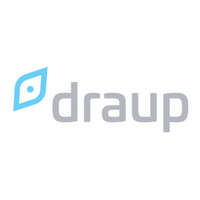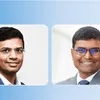
draup
View Brand PublisherHow Draup's cutting-edge technologies and domain expertise helps global enterprises deliver value
“The 1000+ data sources and millions of data points that we handle everyday, has made us view AI as an enabling technology rather than a disruptive one," says Vijay Swaminathan, CEO, Draup. It’s not an exaggeration to say that Artificial Intelligence (AI) and automation have brought about a revolutionary change in almost every sector, and Draup is one among the fast-growing companies leveraging AI in the B2B space that are on the path to becoming a unicorn. Draup works with cutting-edge technologies to innovate and assist their clients with accurate insights on both sales and talent intelligence.
Prowess in the field of Big Data and AI
Draup’s expertise in Big Data is what sets them apart. They analyse above 600 million profiles, more than 100 million job descriptions, above 1 million digital intentions and 1 million companies across the globe, daily through AI and ML models. Draup analyses companies based on their locations, senior leadership management, hiring initiatives, outsourcing partnerships, financials and niche factors affecting the company’s business performance, and many such small and big data points. “From a talent perspective, job responsibilities or skillsets are evolving and roles are getting disrupted rapidly. Draup plays a unique role by enabling decision-making for enterprises with meticulous analysis and delivering insights,” says Kashish Jajodia, CTO, Draup.
The founders Vijay Swaminathan and Vamsee Tirukkala bring to the table their experience of working with Fortune 100 companies and tech giants across several industries and their consulting experience. The company draws domain expertise from the experience the founders have gained through their associations TalentHr.com and labour board organisations like NASSCOM Future Skills. The founders themselves are very hands-on and engage in direct interviews with senior stakeholders from client organisations to understand their requirements, challenges and best practices. This formidable combination of data, insights, technology and consulting frameworks enable the Draup team trend-spot and develop an aligned and well-articulated vision of highly probable future scenarios. "The in-depth and varied expertise of our founders have served as a foundation for our rapid development throughout these years and is still playing an imperative value to our success," says Kashish.
Their final layer of expertise lies in their team, which includes like-minded innovators and disruption enthusiasts who are champions in the AI arena with their creative ideation process and the meticulous execution of projects. The Draup team is young, dynamic and constantly engaged in client interactions, industry engagements, forums to gauge the changing trends, and provide insights that act as a catalyst to create agile solutions.
World-class technology at the helm
Draup leverages the latest advanced open-source tech stack, from graph databases to processes running millions of requests asynchronously per second to spark systems handling TBs of data in a day, through which they have developed various internal proprietary models. To build their platform, they use advanced ML algorithms, architectures and logic models, some developed internally and some by the best tech giants in the industry. All their systems are based on microservices architecture with CI/CD principles.
Talking about their cutting-edge work in the field of Machine Learning, Big Data and Artificial Intelligence, Vijay says, "We continue to disrupt and define new-age trends with the assistance of cutting-edge technology systems in the B2B community. By leveraging the power of these technologies, we enable top-notch enterprise decision-making.”
Vijay says that the zeal their innovative employees bring to the table, and their culture of trust and ownership are their biggest assets."When we come across a problem or an industry challenge, we reflect on how it is related to any of the 50+ internal frameworks that we have developed, thereby identifying unique solutions. Our data storage and internal indices give us a competitive edge in the industry," adds Kashish.
Apart from that, a benchmark that they have created is their stakeholder intelligence which provides actionable insights such as psychographic analysis, their interests and how to approach them and plan a sales narrative. The operational advantage they have is their diverse centres present across various countries.
Driving AI-driven reskilling in today's world
In the current market scenario, where a lot of people have lost their jobs, AI-driven reskilling is critical. While it’s difficult for researchers to manually scan through such huge chunks of data and prepare insights for companies across the globe and different industries, AI, Big Data and ML models can easily do this and provide recommendations for reskilling pathways or workforce analysis. This is where Draup steps in with their reskilling modules that are not just based on AI, but also have the human curation component that enriches the quality and the nicheness of the data.
The Draup team assists clients with holistic talent intelligence, right from identifying the right candidate internally who can be reskilled, to meeting the demand for competencies based on their previous role that might have become obsolete. This reduces layoffs and companies can retain their existing talent pool and make them adaptable and highly skilled. Draup also recommends an upskilling roadmap with course recommendations for enterprises who are looking for internal transitions, hiring and keeping their workforce equipped with next-gen digital skills.
"AI-driven reskilling models as enablers help us to analyse tonnes of data, derive niche insights across the globe and assist in developing reskill pathways in both cost-effective and short time span," Kashish concludes.








